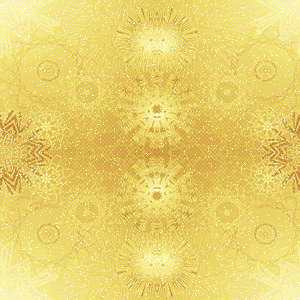
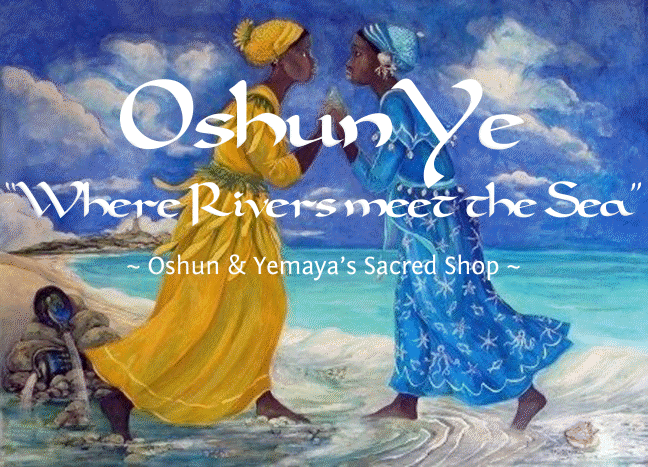
Lukumí Consult
In Yoruba tradition, there are 3 main oracles or divination systems:
- the Obi
- the Merindinlogun or 'el Caracol'
- and Ifa
OBI ORACLE
Obi (4 cowries, or 4 pieces of kola nut or coconut) divination is a simple divination/ conversation with the Orisha or the Eggungun. It is used to answer "yes" or "no" questions. Obi means "kola nut" in the West Afrikan Yoruba language, and within our religion Obi is an Orisha in his own right.
This system gives relatively straight forward answers. While it doesn't go as deeply as "Merindinlogun", it does provide enough information so you can move with confidence and make crucial decisions.
MERINDILOGUN ORACLE
Merindinlogun, or "Sixteen Cowries," is a form of divination closely related to Ifa divination, which is even more complex. It is used to communicate the words of the Orisha. Merindinlogun involves throwing cowry shells (caracol) on a special tray or mat, and counting the number that appear face up. There are 16 principle Odu (signs, energy patterns) that may appear, and each has many (thousands of) verses associated with it. These verses tell stories of mythological clients that are used to provide lessons and predictions. Usually they specify a type of sacrifice or ritual that must be made to receive/maintain alignment or to realign the person with a more favorable outcome (something that coincides better with your destiny).
Only priests Initiated in Yoruba can use it. Our priests employ specific religious techniques while performing a fairly complex ritual before and during the casting of the cowrie shells. It's a system commonly used to learn about the path you walk (past, present and future), find out who is your guardian Orisha, consult your situation (balanced or unbalanced), and find solutions to improve your life.
IFA ORACLE
An Ifa consultation is a visit to Orunmila's house. The word Ifa refers to the Orisha Ifa or Orunmila(Orula), regarded as the Orisha of wisdom and intellectual development. It's a system of divination based on sixteen basic and 256 derivative figures (odu) obtain either through the manipulation of palm nuts (ikin) or by the toss of a chain (opele) of eight half shells.
The Ifa divination system makes use of an extensive corpus of texts. This literary corpus, called odu, consists of 256 parts, which are subdivided into verses called ese, whose exact number is unknown as it is in constant growth (ther are around 800 ese per odu). Each one of the 256 odu has its specific divination signature, which is determined through a procedure held by a Babalawo. The ese, considered as the most important part of Ifa divination, are chanted by the priests in poetic language. The ese reflect Yoruba history, language, beliefs, cosmovision and contemporary social issues.
Ifa divination does not rely on a person having oracular powers but rather on a system of signs that are interpreted by a diviner, the Ifa priest or Babalawo, literally "the priest's father". The Ifa divination system is applied whenever an important individual or collective decision has to be made.
We perform these highly useful forms of divination for individuals, families, communities, organizations, nations and even planetary bodies.
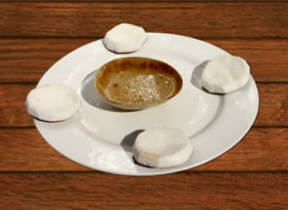
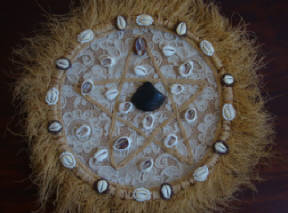
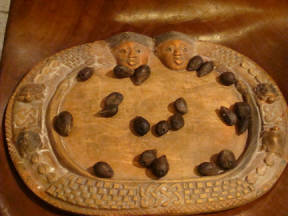

------------------















